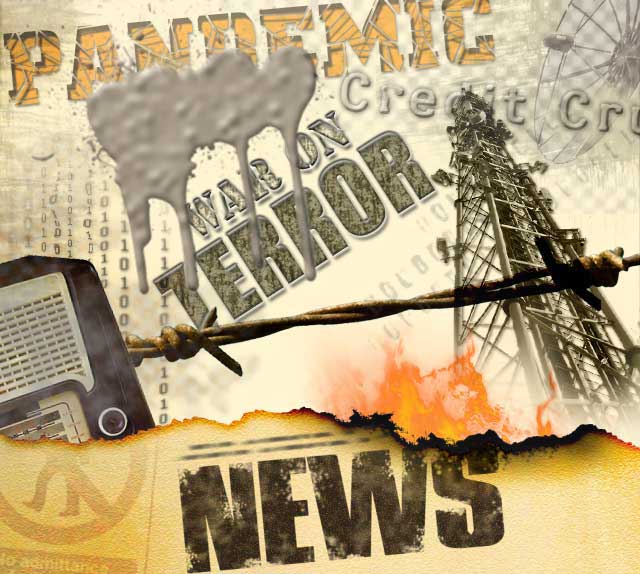By Javier Delgado Rivera
News coverage of investigations into terrorist attacks raise concerns about whether the media goes too far in reporting police findings that may be of some help to bloodthirsty fundamentalists.
Before committing their heinous acts, terrorist-minded individuals will be sure to wipe out all the information on their cell phones after learning in the media how the damaged handsets found near the San Bernardino shootings in early December helped the FBI track a confidante. They may also decide not to use phone communication altogether after reading precise media reports on how, in January last year, Belgian police were able to kill two jihadists after intercepting suspicious calls originating in Athens. The same ill-intentioned individuals will tear to pieces their receipts after finding out in the mass media how French police linked one of the terrorists of the Paris bloodbath to Brussels, thanks to parking tickets issued in Molenbeek, a district in the Belgian capital.
These are only three examples of how detailed media reporting on police investigations can inadvertently help attackers avoid past miscalculations and refine their modus operandi. Journalists would argue that their job is to protect society’s right to know. Yet in such exceptional circumstances, editors should ensure that the latest information they feed to their audience is useless to fundamentalists seeking to do harm.
Of course, in most cases, the media does not come up with its own findings, but rather echoes what the authorities reveal. Therefore, security forces have the primary responsibility to prevent investigation details from reaching extremists. In the same way that the army does not share with the media details of its intelligence gathering in operations like the US-led intervention in Syria and Iraq, law enforcement bodies should look at all the potential consequences of unveiling sensitive details of their domestic counter-terrorism investigations.
It is fair to say that to a large degree the mainstream media avoids covering this type of susceptible information. However, this rule of thumb can get overturned in the 24/7 global news cycle. Karin Raeymaeckers, a professor at the Department of Communication Sciences at Ghent University in Belgium, argues that “authorities negotiate in good faith with national media the boundaries of information, but these lines of mutual understanding are far weaker when the international media gets involved.”
As in so many other areas, the Internet has changed the way jihadists learn and polish their gory business. “As lone terrorists are increasingly self-radicalising and learning how to commit terrorist attacks over the Internet, as opposed to only learning from other terrorist group members, we may want to think carefully about the type of information we present in media stories about terrorism,” says Jeff Gruenewald, assistant professor at the School of Public and Environmental Affairs at Indiana University-Purdue University in the US.
Even when the media praises security forces’ efforts to prevent carnage, it could be hinting to radicalised minds how not to repeat their peers’ mistakes. “Failed or foiled terrorist plots may also receive increased news coverage with an emphasis on how authorities were able to successfully thwart tragedy and protect the public,” says Gruenewald.
Having said that, it should be acknowledged that the media often plays a supportive role, assisting security services. To pick just one example, last year the American mass media widely spread an FBI call asking for the public’s help in identifying a militant who appeared in an ISIS video. In other instances, “the media can hold back the publication of evidence or publish misleading information to assist authorities in apprehending a suspect by, for example, lulling him or her into a false sense of security,” stresses Raeymaeckers.
It only takes a single media outlet reporting compromising details of past or ongoing investigations to put this information a simple click away from tomorrow’s terrorists. In the wake of attacks like the ones that hit Turkey, Lebanon, France and the US—to mention just a few—over the last months, newsrooms must strike a delicate balance between journalistic ethics and the public’s right to know. The media should be the last place extremists look when planning their gruesome plots.
Javier Delgado Rivera is a freelance journalist based in the New York, covering Asian and European politics. His writing has appeared in Eurasia Review, Global Politician, North Korean News, New Europe, Understanding China and elsewhere. This article was first published on openDemocracy website on 6 Januart, 2016. Republished here under a Creative Commons Attribution-NonCommercial 4.0 International licence.
